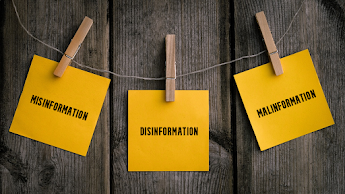I learned a lot of valuable information from Group Two and their presentation about the Mediasphere. The mediasphere is defined as "The collective ecology of the world's media, including newspapers, journals, television, radio, books, novels, advertising, press releases, publicity, and the blogosphere; any and all media both broadcast and published."
Echo Chambers
An echo chamber is an environment or ecosystem where people encounter beliefs that amplify or reinforce their preexisting beliefs. Echo Chambers cause increased polarization, the spread of misinformation, and social cohesion. Echo Chambers can happen anywhere information is exchanged.Whistleblowers
Whistleblowers promote transparency by promoting wrongdoing. They provide the right information to the right person. Whistleblowers find themselves in difficult situations where they report misconduct. This is a brave act to speak out and report something that is wrong.
An example of a whistleblower case took place in 1971. Daniel Ellsberg published the Pentagon Papers and was a history-making whistleblower. This paper revealed that the United States had expanded war with the bombing of Cambodia and Laos, coastal raids on North Vietnam, and Marine Corps attacks. None of this was reported by the American Media.
Online Influencers
The origin of influencers was in the mid-2000s, with platforms like YouTube, Instagram, and TikTok. Influencer speech is protected under the First Amendment. Influencers often post about personal opinions, whether that is politics or their favorite clothing brand.
Citizen Journalism
 |
| Example of Citizen Journalism |
Citizen journalism is when citizens report the news before a news outlet can get to the scene. It is accessible, speedy, and diverse, and allows for community engagement. Real-time updates especially for breaking news. The problem is the lack of factual content that can be done by anyone.
Alternative Media
Alternative Media is less external interest. More integrity, unbiased news, and specialized. Alternative Media gets their funding through non-profit since they are independently owned. With the rise in social media blogs and podcasts have become more popular and easily accessible.
Mainstream Media
Mainstream media channels reach a wide audience. Examples of these channels include CNN, BBC, and The New York Times. Mainstream media is at the top and very powerful. They are in the loop constantly about what is going on in the news.
Media Bias is a negative of mainstream media. The news channels control what is said and what is being seen by the public eye. No news outlet is always neutral. Often times people listen to only one news outlet, which is negative because they are only getting the opinion from the mainstream news outlet they watch.






















